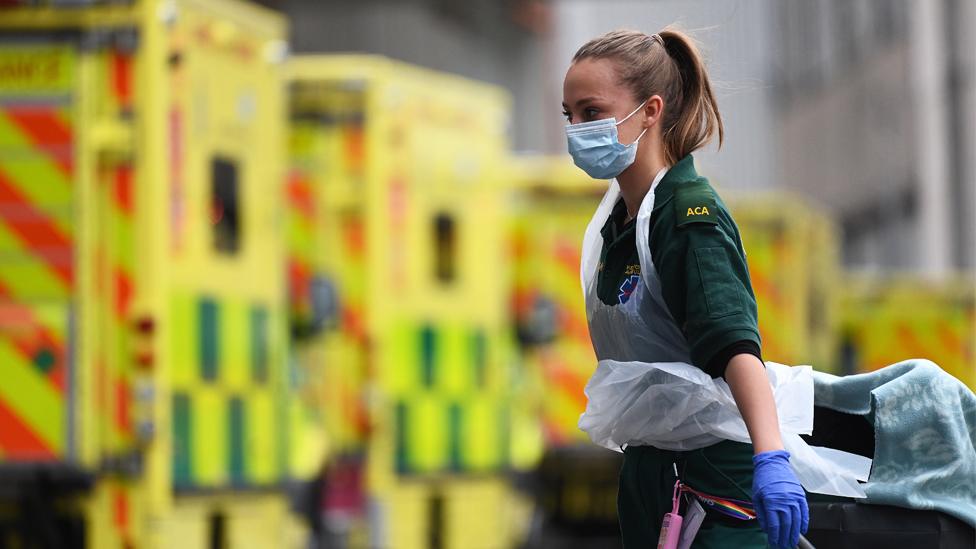My mum's 40-hour wait to get to A&E with hip break
- Published
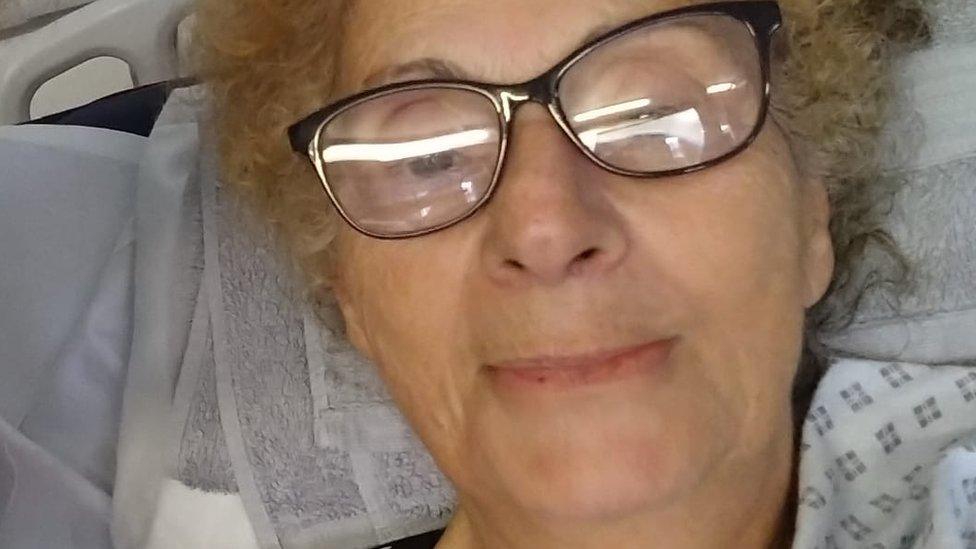
Koulla's family have received an apology from the hospital over the problems with her care
When 85-year-old Koulla fell at home, her family immediately rang for an ambulance. She was in agonising pain - she had broken her hip.
It was around 8pm. It took another 14 hours for an ambulance to get to her, leaving her pregnant granddaughter to care for her through the night.
When they arrived the crews were able to give her pain relief and quickly transported her to the Royal Cornwall Hospital.
But there the wait continued - there were around 30 ambulances queuing to handover patients to A&E staff.
It was another 26 hours before she was taken inside to A&E.
She then faced many hours in A&E before being taken for surgery.
Hospital sorry for failings
Koulla's daughter, Marianna Flint, 53, said: "It was awful. You feel helpless because you're giving your trust over to them to look after a family member who's in agony and who needs surgery."
She has since received a written apology from the Royal Cornwall for the care provided to her mother in August.
The trust said it was "sincerely" sorry for the failings.
Ms Flint said: "I almost feel sorry for those looking after her. It's not down to them. There was no room inside to accept her in."
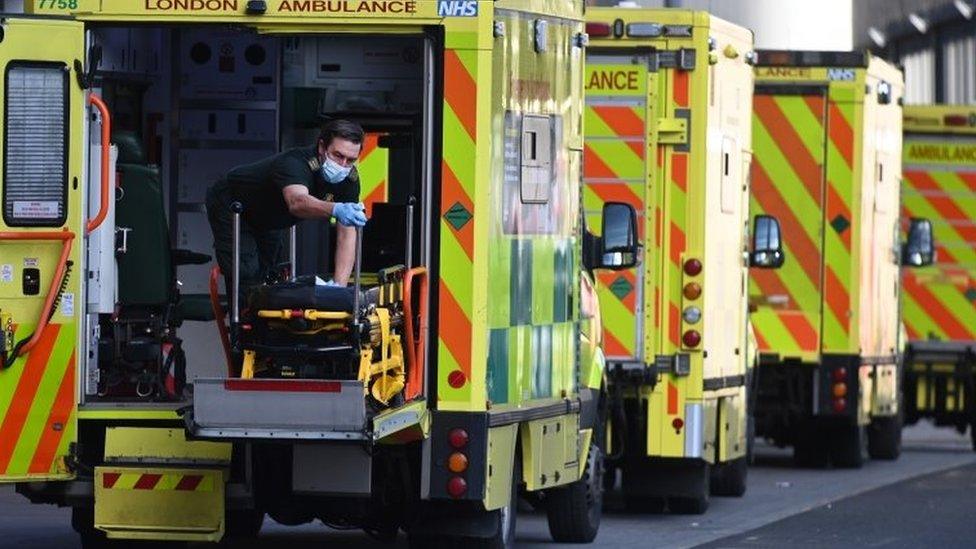
But Koulla is just one of many thousands of patients getting caught up in these delays.
When ambulance crews bring patients to hospital they are meant to be able to handover their patients to A&E staff within 15 minutes.
But an analysis by the BBC shows by late November more than 11,000 ambulances were spending over an hour stuck in queues outside hospital every week.
That is one in seven of all arrivals and the highest since records began in 2010.
Rishi Sunak said he will sit down with the NHS "relatively soon" to discuss the issues around ambulance waiting times.
Speaking on Thursday evening, the prime minister said he wanted to see waiting times come down and the government had put more money into the NHS to help address the issue.
He said more money had also been put into social care to allow people to move out of hospitals and back into their homes.
He added: "I want to make sure the extra funding we're putting in is actually going to make a difference on the ground."
Long waits risk to patients
The College of Paramedics said crews were facing a "perfect storm", with the queues outside A&E preventing them reaching patients who need a 999 response.
College chief executive Tracy Nicholls said: "We all know patients are coming to harm and in some cases severe harm."
And even when patients are admitted into A&E they can face long waits for a bed on a ward, with hospital bosses blaming a shortage of beds and problems discharging patients back into the community.
Experts believe these problems are a contributing factor to the high levels of deaths being recorded - in recent months 1,000 more deaths a week are being seen than would be expected.
The Royal College of Emergency Medicine believes disruption to emergency care may account for around a quarter of these deaths.
College president Dr Adrian Boyle said ambulances had effectively become "wards on wheels".

Both ambulance response times and A&E waits have hit their worst levels on record in all parts of the UK in recent months.
In Cornwall, patients facing emergencies such as heart attacks and strokes are now waiting more than two hours on average for an ambulance. The target is 18 minutes.
They are thought to be among the worst delays in the country, but none of England's ambulance services is close to the target, while Wales, Scotland and Northern Ireland are all missing their targets.
Alongside Cornwall, parts of Gloucestershire, Lincolnshire, Somerset and Bristol have the longest waits, Freedom of Information requests by the Liberal Democrats have revealed.
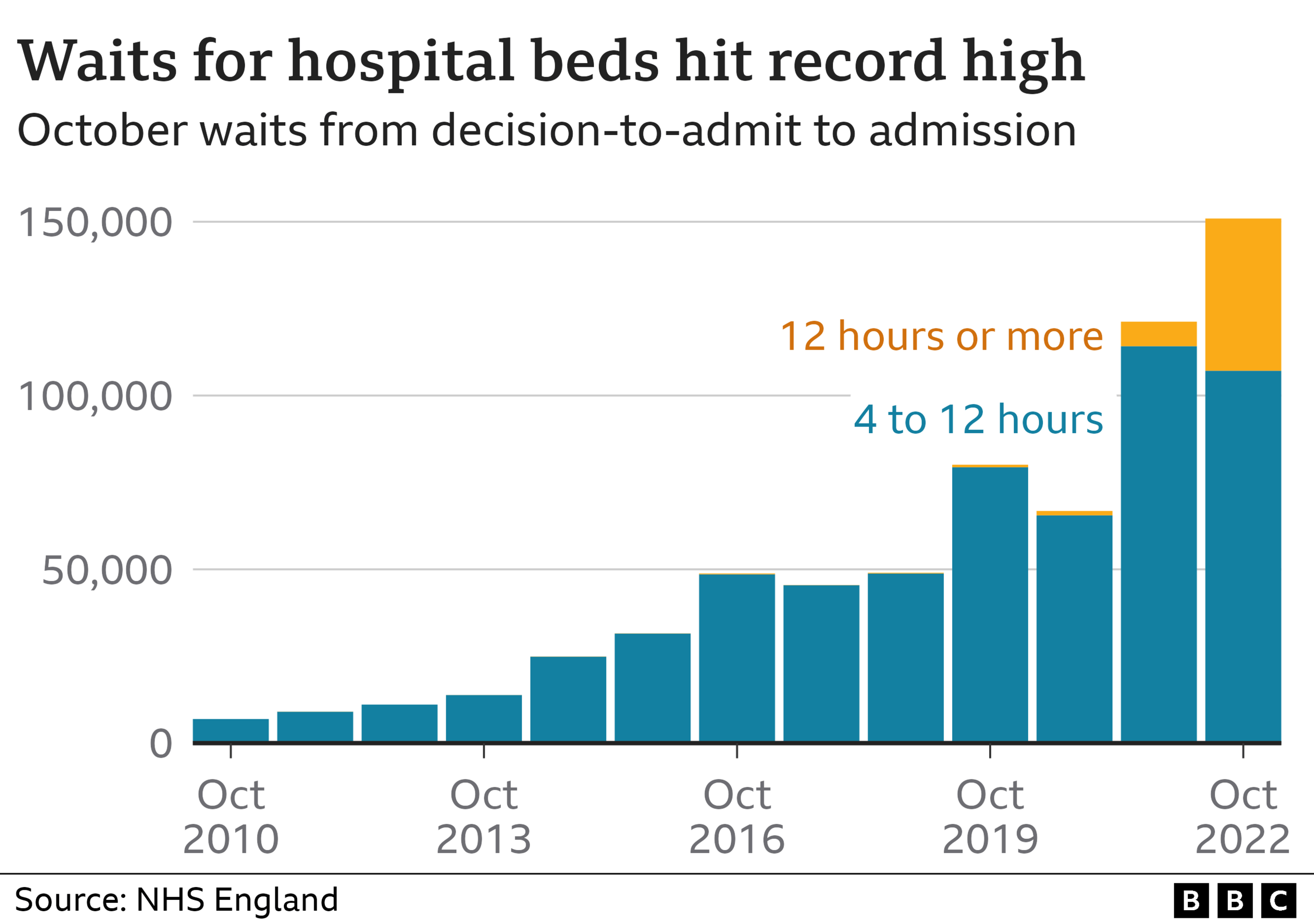
The problems come as NHS staff prepare to take strike action.
Unions have cited the problems facing the emergency care system as one of the factors motivating members to vote for a walkout.
A strike by members of the Royal College of Nursing is planned for 15 and 20 December in England, Wales and Northern Ireland, while earlier this week the two main unions representing ambulance staff said their members had also backed walkouts.
The government said the NHS will publish its emergency care recovery plan in the new year, which will set out proposals to improve ambulance response times and A&E performance in England.
A spokesman for the Department of Health said an extra £500m was being made available to speed up hospital discharges and free up space in A&E, creating the equivalent of at least 7,000 more beds this winter
"This will be supported by an additional £6.6bn in the NHS over the next two years to enable rapid action to improve urgent and emergency care performance towards pre-pandemic levels," he added.

Have you experienced a long wait for an ambulance or at A&E? Share your experiences by emailing haveyoursay@bbc.co.uk, external.
Please include a contact number if you are willing to speak to a BBC News journalist. You can also make contact in the following ways:
WhatsApp: +44 7756 165803
Tweet: @BBC_HaveYourSay, external
Please read our terms & conditions and privacy policy
If you are reading this page but cannot see the form, visit the mobile version of the BBC website to submit a question or comment, or email HaveYourSay@bbc.co.uk, external. Please include your name, age and location with any submission.
Related topics
- Published21 October 2022
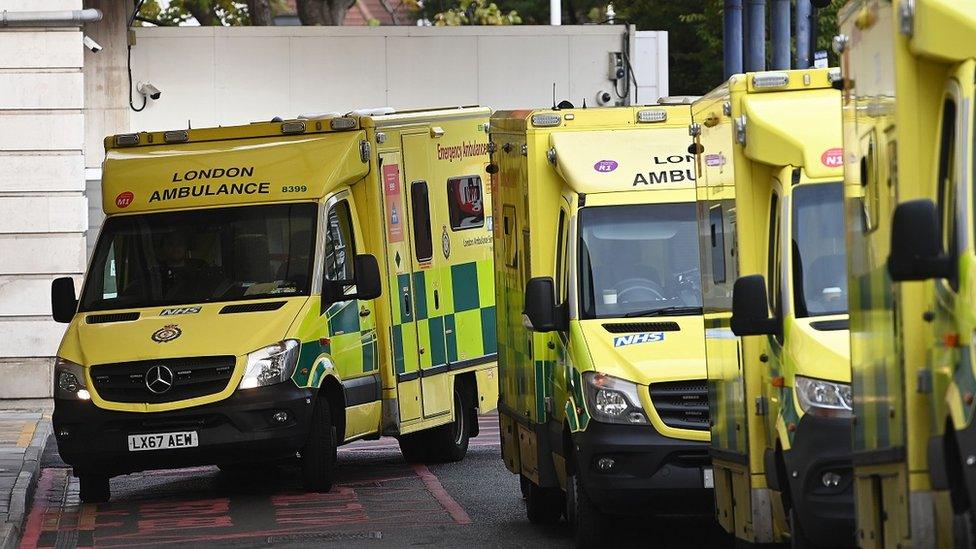
- Published18 October 2022

- Published24 November 2022
